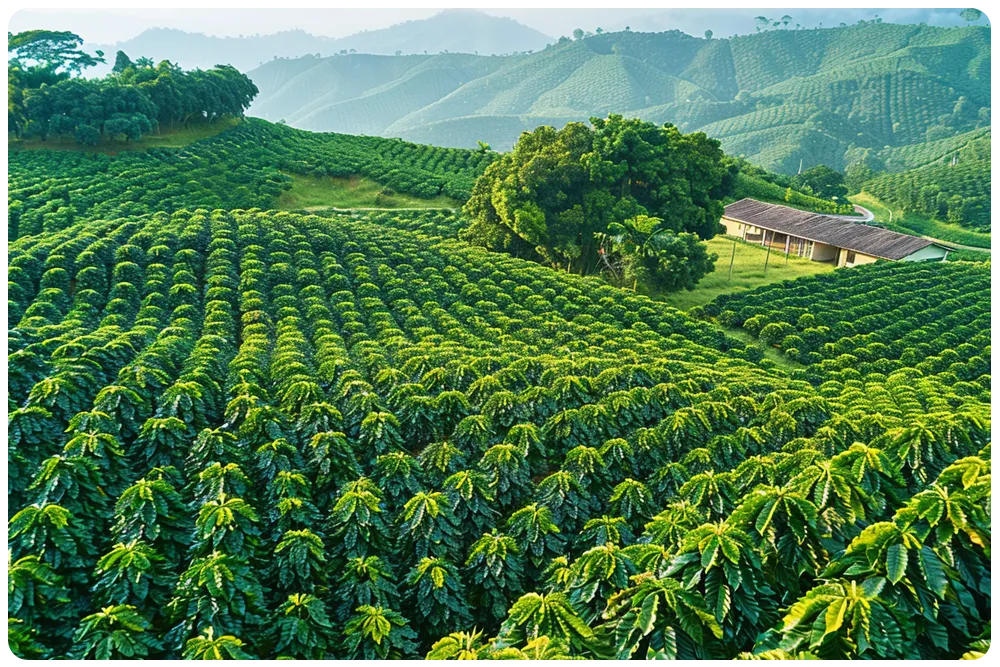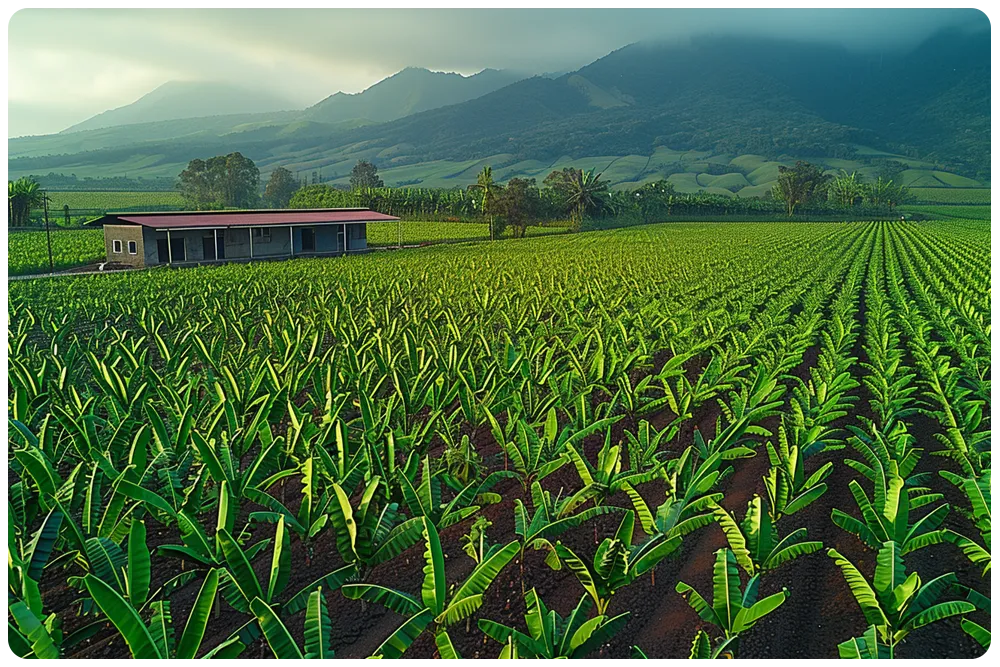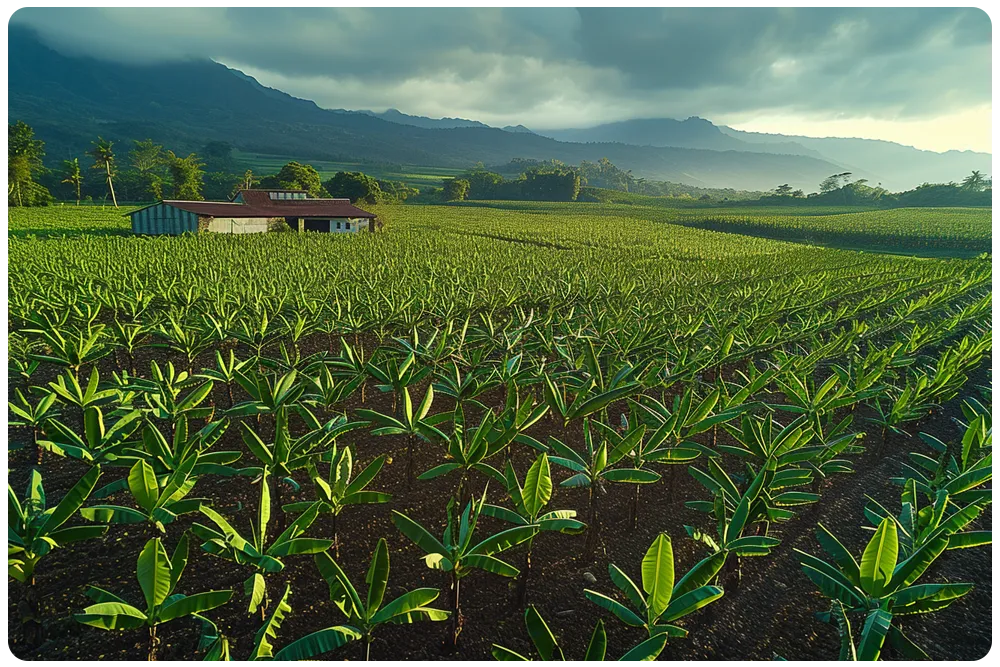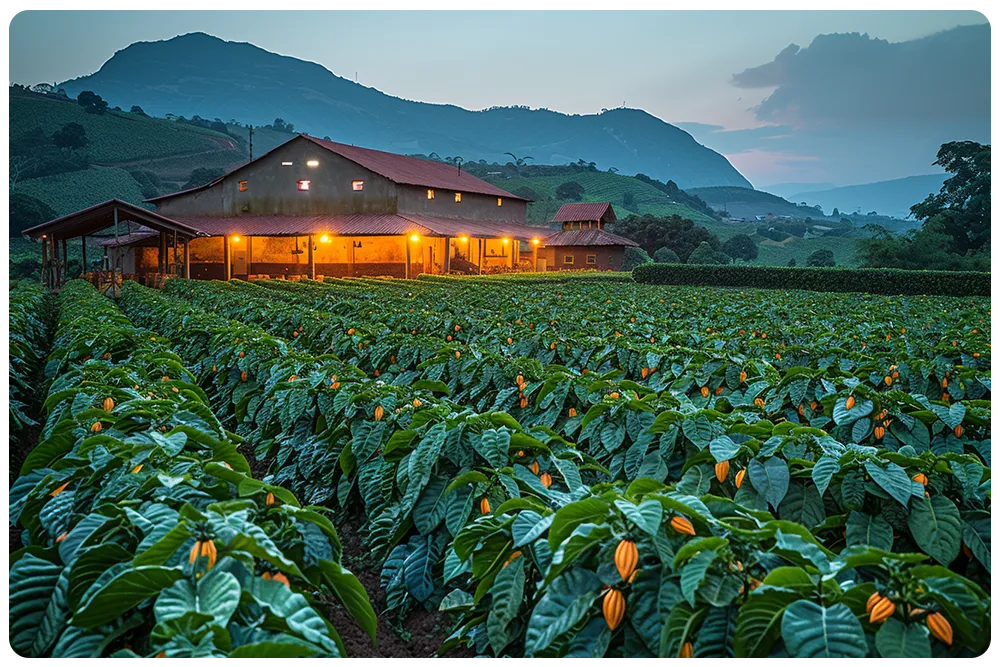Discover how drone technology revolutionizes farming. Understand the major sustainability benefits drones provide in crop management.
Welcome to Drone Farm
We offer a comprehensive range of agricultural drone services. With years of experience, we’ve harnessed our expertise to deliver high-quality services to our clients. Our team provides full support at every stage. Choose us for top-tier Drone Farming experiences!

Contents
- 1. How do drones contribute to sustainability?
- 2. Drones facilitate efficient agricultural practices
- 3. Can drones reduce environmental footprint?
- 4. Drones enable remote environmental monitoring
- 5. Drones support sustainable delivery services

1. How do drones contribute to sustainability?
Welcome to our portal dedicated to the cutting-edge technology of agricultural drone. As an invaluable resource, it offers comprehensive insights into how utilizing modern drone tools harness potential to revolutionize farming.
The Sustainable Benefits of Drones
The voice of sustainability in agriculture is loud and clear. It calls for a shift to environmentally friendly farming practices, and this is where the agricultural drone shines. Drones have a significant contribution to the realm of sustainable agriculture through several ways:- Conservation of Resources: Precision farming powered by drone technology contributes to the efficient usage of crucial resources like water and fertilizers. The drone captures detailed crop data, allowing farmers to apply resources where they are needed most, eliminating waste and reducing the farm’s environmental footprint.
- Enhanced Crop Monitoring: The agility of an agricultural drone enables close, systematic observation of the field, swiftly detecting areas suffering from drought, disease, or pest infestation. Early detection allows for prompt intervention, thus reducing crop loss and maintaining healthy harvest yields.
- Minimization of Soil Erosion: Traditional farming methods can lead to soil disruption and subsequent erosion. However, drone farming, with its precision capabilities, minimizes soil disturbances, consequently preventing erosion and protecting soil fertility.
- Data Collection and Analysis: The power of a drone also lies in its capacity for extensive data collection. From monitoring crop growth cycles to identifying anomalies, the collected information can contribute significantly to sustainability-focused farm management strategies.
2. Drones facilitate efficient agricultural practices
Drones Facilitate Efficient Agricultural Practices
Introducing drone technology in farming and agriculture boosts efficiency in multiple ways. Primarily, a single drone can cover vast stretches of farmland, performing tasks that would previously take farmers hours, if not days, to accomplish. This article will further elucidate on the many ways that drone technology significantly uplifts your agricultural operations.The drone technology available today is designed to optimize every aspect of crop production. Below are some exclusive insights into its advantages:
- Real-time Data Collection: Using drone, farmers can gather timely data about their fields, including information about crop health, soil quality, and pests. This level of data granularity is unprecedented and allows for minute adjustments that significantly improve yield.
- Improved Crop Health Monitoring: Drone technology has brought about the possibility of detecting crop diseases early. With regular high-detail imaging, farmers can spot symptoms of illness and treat plants before the problem spreads, minimizing potential losses.
- Efficient Irrigation: Drones equipped with thermal sensors can map irrigation systems, highlighting areas with leaks or inefficiencies. This reduces wasted water, improving sustainability while maintaining crop health.
- Optimized Fertilizer Application: With the ability to generate precise vegetation index images, drone can identify areas of the field that are nutrient deficient. This allows for targeted fertilizer application which not only improves crop yield but also minimizes the environmental impact.


3. Can drones reduce environmental footprint?
Can Drones Reduce Environmental Footprint?
In the world of agriculture, the innovative tool that is a drone is making some key waves. As the guardians of food production, farmers are constantly on the lookout for efficient ways to manage their farms. Incorporating drone technology in farming activities lends a hand in achieving just that. But could this small, advanced tool also contribute significantly to reducing the environmental footprint of farming? Let’s explore this line of thought.
Firstly, a drone’s ability to accurately assess plant health through the use of advanced imaging technology can vastly decrease the need for harmful pesticides. Rather than blanketing an entire field with chemicals, as traditional farming may require, a drone ensures precision application. This method greatly reduces the amount of chemicals dispensed, thereby lessening pollution.
- Minimized Use of Chemicals: Drones, equipped with optical sensors, can detect early signs of plant illness, which averts widespread crop damage. This eliminates the need for preventive chemicals usage, which usually leads to chemical leaching and groundwater pollution.
- Fuel Efficiency: Their impressive fuel efficiency when compared to larger, traditional farming machinery further bolsters a drone’s green credentials. Automated drones can cover large farm areas quickly, requiring lesser fuel than standard farm vehicles. This results in reduced carbon emissions, thus further minimizing environmental impact.
- Water Conservation: From inspecting irrigation systems for leaks to optimizing water utilization through efficient irrigation planning, a drone plays a significant role. This can drastically reduce water wastage— an essential factor considering the world’s growing water scarcity issues.
Drones can yield an abundance of invaluable data, which, when analyzed, can provide insights essential for effective decision-making in farming. Furthermore, implementing drone technology can result in reducing the environmental footprint, establishing its role as a vital tool for sustainable agriculture.
Farming is a centuries-old profession that’s no stranger to innovation. From the dawn of agricultural societies to today’s tech-driven practices, the industry has evolved immensely. Drones are the latest addition to this journey, combining the merits of technology with sustainable practices, opening the doors to an environmentally conscious future of agriculture.
4. Drones enable remote environmental monitoring
Boost your knowledge on the innovative use of drone in farming and take a fresh look at how they contribute to environmental sustainability. Here we delve into the exciting realm of agricultural drone technology, casting a spotlight on its diverse functionalities, benefits, and their direct influence in making farming operations more efficient and environmentally sound.
The adaptation of drone technology for agriculture has provided farmers a novel way of managing their fields. Through high tech monitoring capabilities, farmers can now get a birds-eye view of their lands, without leaving the comfort of their farmhouses. They can cover more ground efficiently, pinpoint problem areas, and take immediate action. In the process, a drone reduces the footprint on the environment by limiting the use of heavy machinery and conserving fuel.
Let’s explore the nitty-gritty of how drone farming is contributing significantly towards a sustainable future:
- Enabling remote environmental monitoring: The drone doesn’t just offer an aerial view, they come equipped with various sensors which can collect essential data about the environmental conditions. Monitoring soil health, checking water levels, or detecting pest infestations become a matter of a few keystrokes.
- Maximizing water usage: Equipped with advanced sensors, a drone can detect areas needing irrigation, facilitating precision watering. This approach not only conserves water but also prevents unwanted run-offs that might carry away valuable topsoil and end up polluting nearby water sources.
- Reduction in chemical usage: With the granular data provided by the drone, farmers can apply pesticides and fertilizers selectively only in the required areas. This targeted approach reduces chemical usage which is good for both the environment and the produce.
By utilizing a drone for these critical applications, the agriculture sector is paving a new path in terms of sustainability and environmental consciousness, making drone farming a revolution in the truest sense. Hence, the drone is not only making farming more robust and efficient but also playing a significant role in addressing environmental challenges and making farming sustainable.


5. Drones support sustainable delivery services
Embracing Sustainability with Agricultural Drones
The role of drone technology in agriculture has been transformative, particularly in regards to enhancing sustainability and reducing environmental impact. Drones in farming not only optimize cultivation and crop health, but they also promote eco-friendly practices, marking a major shift in agribusiness.
In this realm, drones play a crucial role by providing:
- Sustainable delivery services: Agricultural drones afford a system of swift, cost-effective, and energy-efficient transportation. Without the need for fuel-dependent vehicles, these autonomous machines deliver vital resources like seeds, fertilizers, and even agricultural medicine across vast farmlands, thus lowering greenhouse gas emissions.
Optimizing Resource Usage
Just as drone technology can enhance delivery services, it can also contribute to more sustainable use of resources:
- Minimized waste in farming: The pinpoint precision of drones helps reduce unnecessary seed and fertilizer usage, improving resource utilization and further minimizing environmental impact.
Monitoring Crop Health and Reducing Illness
A significant edge that drone technology presents lies in its ability to effectively detect and control crop diseases:
- Prompt disease detection: Agriculture drones can utilize thermal and multispectral imaging to detect crop illness early on, enabling farmers to take pre-emptive actions before significant damage occurs. This proactive approach bolsters farm management and sustains crop health.
As we harness drone technology, we step closer to ensuring the sustainability and success of our agricultural practices. By doing such, we foster a more balanced and eco-conscious agribusiness landscape. With these varied applications and remarkable benefits of drones, it’s clearer that our future in farming is in the sky.